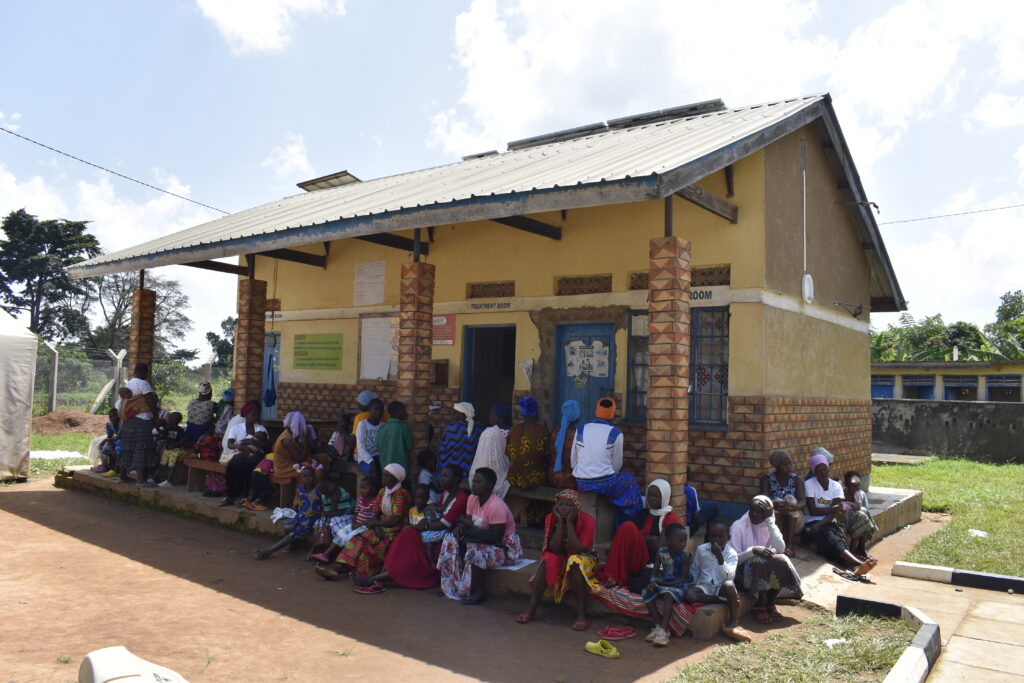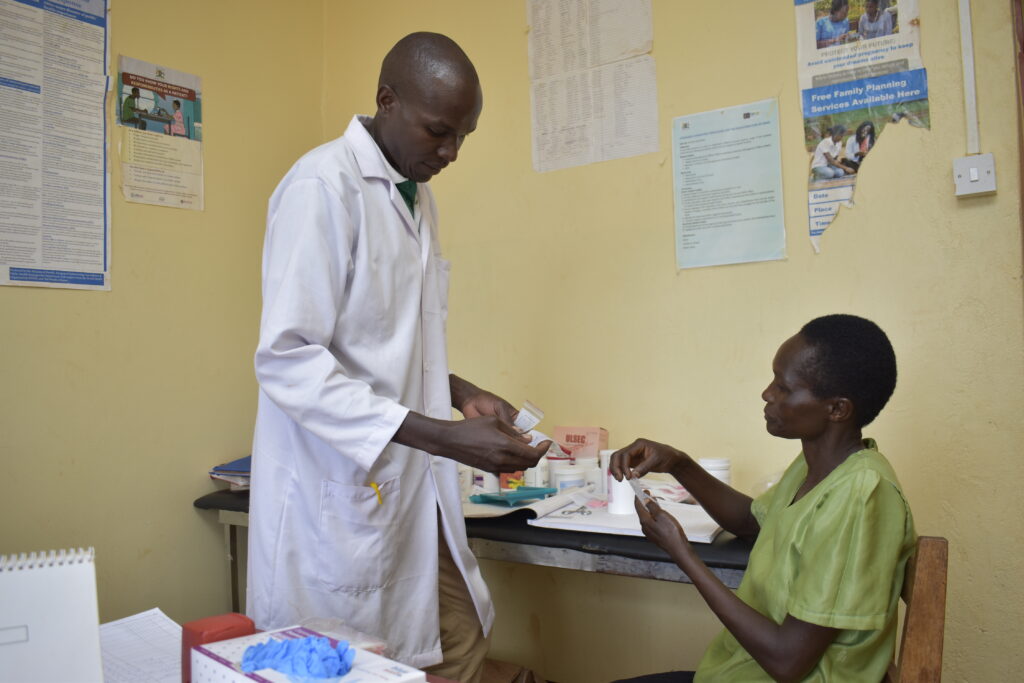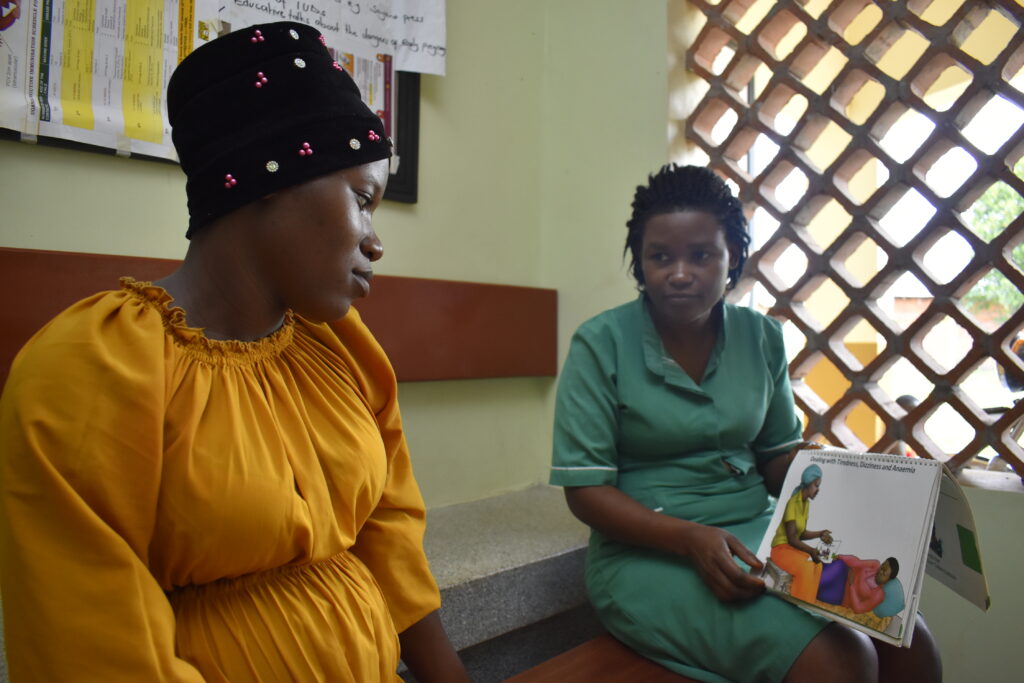In Uganda, Cordaid’s HEROES programme strengthens the health system through a results-based financing approach and directly supports 36 public facilities in eight districts. Let’s have a look at three of them to see what health systems strengthening looks like in practice.

How well health facilities perform can be measured by clear indicators, for example, the quality, accessibility, and affordability of the services. Results-based financing incentivises providers by granting additional funds when agreed results on those indicators have been achieved and allowing them to further invest in improving their services.
One of those centres is Kwirwot, on the border between Uganda and Kenya, just outside Mount Elgon National Park. Kwirwot prioritises the provision of sexual and reproductive health services to a population of 4,000 and offers a range of support to survivors of sexual and gender-based violence.
Regular client Jackline Chebet has seen the services improving. ‘Before the programme started, there was always a shortage of medicines. Now, you can find whatever you need. What also makes me want to come back here is the staff. They are always so kind.’

Youth-friendly services
The land area between Lake Victoria and Mount Elgon National Park is known for its large informal sector, dominated by young people involved in cross-border trading. That is why the programme works with peer educators who offer services catered towards youth.
‘Our community is very diverse,’ says Norah Sukuku, a 27-year-old peer educator. ‘We plan our activities for Ugandan and Kenyan youth. The diversity has enhanced our creativity in delivering information on sexual and reproductive health. We use a role-playing method that appeals to people from both sides of the border.’
Hard-to-reach areas
The Brim Health Centre lies on the eastern plains of Mount Elgon and serves an estimated 6,000 people, many of whom live in hard-to-reach areas.
According to Yesho Martin, a clinical officer at Brim, the staff had to go out of their way to reach the population. ‘People from the lower parts can only reach us by donkey because motorised vehicles can’t come up here. The healthcare providers walk down the mountain to 17 villages to deliver their services. We also visit 14 villages on the upper belt, closer to the centre.’
Introducing the results-based financing approach has noticeably transformed the facility, Martin says. ‘We used the funds to construct a new building to create enough room for our clients. The Ministry of Health upgraded our facility from level one to two. This means the quality has improved and we offer a larger variety of services. Most of the health workers were volunteers. Now, we hired local staff and bought more medical supplies.’
‘When I arrived, the staff were incredibly supportive. I received treatment and one of the health workers acted as a counsellor between me and my husband.’
Addressing sexual and gender-based violence
According to the Uganda Demographic and Health Survey for 2022, 16% of women between 15 and 19 years old have experienced some form of sexual and gender-based violence.
Young women usually do not report the violence, which makes it difficult to detect the cases. Thankfully, this is changing, as we can see in Kebula, another clinic supported through the programme.
Vouchers
HEROES positions health facilities at the centre of the response for survivors of gender-based violence. Cordaid provides free vouchers to ensure access to a comprehensive package of services and the health workers at Kebula actively screen and identify women and girls facing violence and make sure they get the support they need.

‘I had a misunderstanding with my husband and he physically assaulted me’, says 23-year-old Fatuma Nangale. ‘My baby was three months old and I was in a bad state. The peers gave me a voucher and told me to go to Kebula. When I arrived, the staff were incredibly supportive. I received treatment and one of the health workers acted as a counsellor between me and my husband.’
In a large area in Uganda, the results-based financing method positively influences all aspects of healthcare provision, from equipment and medication to staff support, supervision, training, and referral networks. It’s a systems-strengthening approach that ensures good quality health services for all.